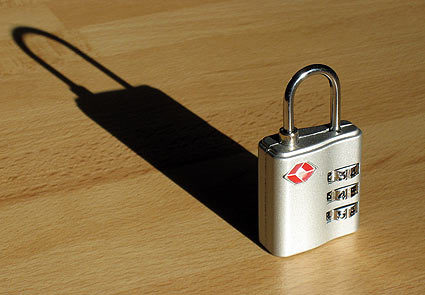The Web Is My Castle: Secure Backup Over the Internet
Secure And Mirror Your Data Via VPN
An increasing number of PC users know about the importance of backups as the only safe way to secure data in case of hardware failures. But any form of backup has to be effective. This means that the condition of your data must be verified, and that the backup data has to be stored at a secure location. In the end, you want to make sure your data survives any disaster, so it can be used for recovery. Based on our experiences, we have concluded users don't normally pay enough attention to securing data off-site, which led us to investigate the options for securing data over networks and even the Internet.
Most forms of backup are typically performed in-house, right next to a PC, for simple technical reasons. Whether you copy data onto additional hard drives, external hard drives, CDs, DVDs, an Iomega REV drive, streamers, magneto-optical drives or other backup solutions, all of them are usually directly attached to the host computer. Permanently installed backup solutions thus have a major disadvantage: users or viruses can modify the backup data; crackers can take control of a fileserver and even erase all of it. To make a backup effective, it is important to remove the backup drive or medium and to place it somewhere else, where it is secure and can neither be accessed nor modified. Only data safety and physical data security make for a proper backup.
Hence, you should take an additional step and store backup media at a completely different location once in a while. Taking home a weekly backup to place it inside a vault or locker will protect recent data even from natural disasters; If your office gets flooded or wiped out by a fire, chances are that your off-site backup remains intact. It does not, however, protect against physical intrusion and theft, so you should also consider encrypting data and physically restricting access tightly.
Using networks to perform backup is an alternative that should be considered today. Even if your intent isn't data protection, but data synchronization between two or more PCs, the Internet has become increasingly appealing. More and more people access the Web via relatively high-speed connections using DSL or cable. Although the upstream performance (sending data across the Internet) is considerably lower than the ability to receive data (downstream), many lines are still fast enough to copy dozens or even hundreds of megabytes of data overnight onto another PC. But how do you connect to another PC? Which software is suitable to replicate or mirror contents? What about privacy and encryption? We found a nice software solution to create encrypted virtual private networks (VPNs) easily, and there are free tools that will take care of the backup and synchronization job.
Current page: Secure And Mirror Your Data Via VPN
Next Page Using Your Internet Line Makes Sense!Get Tom's Hardware's best news and in-depth reviews, straight to your inbox.

Patrick Schmid was the editor-in-chief for Tom's Hardware from 2005 to 2006. He wrote numerous articles on a wide range of hardware topics, including storage, CPUs, and system builds.
